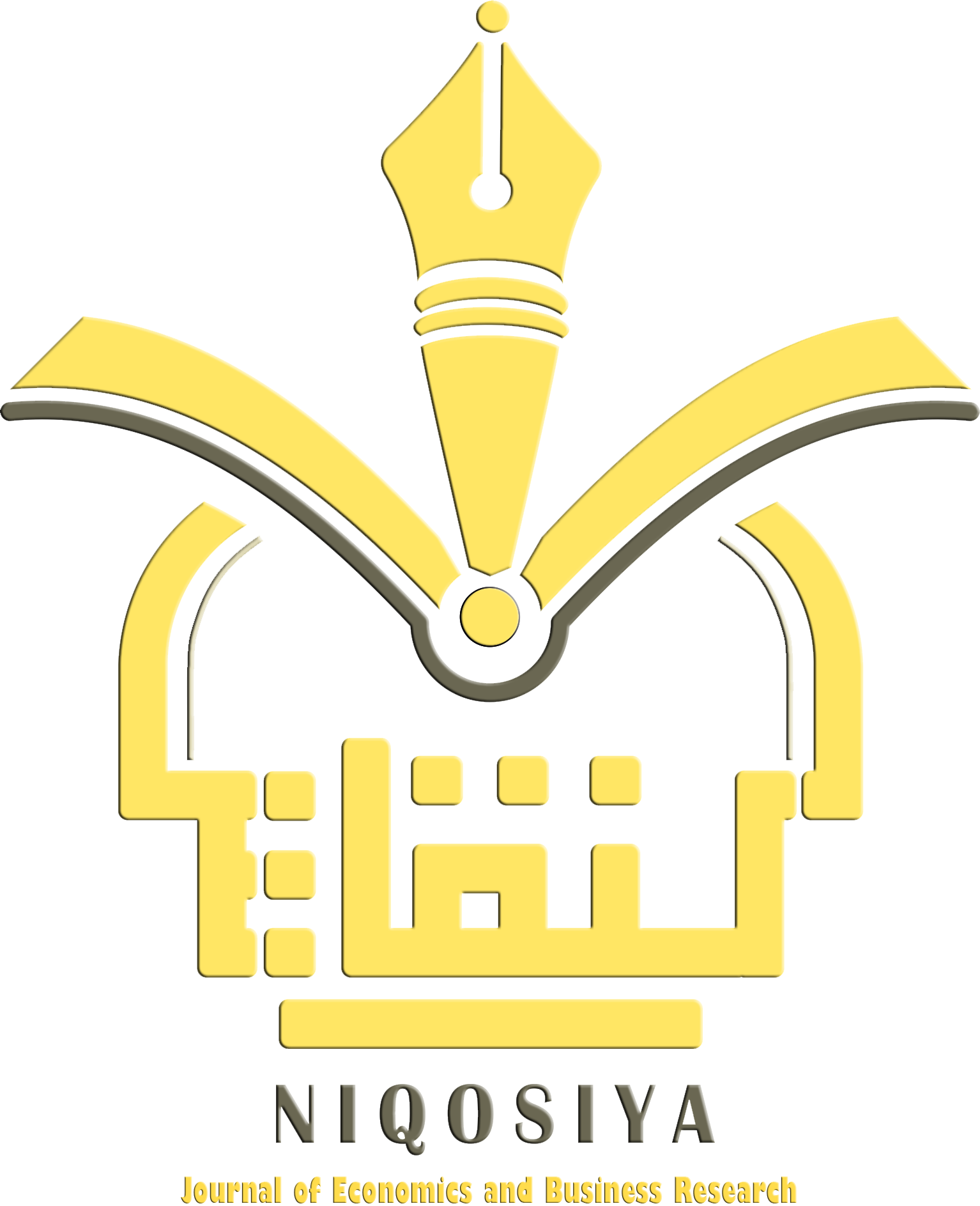Manajemen Konflik Pada Franchise Roti Bakar Gandaria Magetan
Abstract
Conflict is common in everyday life, including business. Conflicts occur between franchisors and franchisees in the Roti Bakar Gandaria Magetan franchise. Conflicts arise due to policies that need to be carried out correctly and services that are not optimal. For this reason, this study was conducted to determine how conflict management was carried out by the Roti Bakar Gandaria franchise head and its impact. The method used in this study is qualitative, with data collection techniques in the form of interviews and conservation with franchisors and franchisees who experience conflict. The data analysis technique used is a deductive analysis that departs from general to specific by looking at the theory and then colliding with actual conditions. The results of this study show that the conflict in the Gandaria Toast franchise is constructive-horizontal. The leading cause of conflict is poor communication between franchisors and franchisees. The strategies to resolve conflicts are Collaboration Strategy, Competitive Strategy (competing), and Accommodative Strategy. The impact after the franchisor issues a policy to the franchisee is the resolution of the conflict, even though the franchisee is dissatisfied because the decision issued is considered inappropriate.
Downloads
References
Abdurahman. (1991). Ensiklopedia Keuangan Perdagangan. Jakarta: Pradnya Paramita.
Adeyemi, B. S., & Aigbavboa, C. O. (2022). An Exploratory Factor Analysis for Conflict Resolution Methods among Construction Professionals. Buildings, 12(6). https://doi.org/10.3390/buildings12060854
Antia, K. D., Zheng, X., & Frazier, G. L. (2013). Conflict management and outcomes in franchise relationships: The Role of Regulation. Journal of Marketing Research, 50(5). https://doi.org/10.1509/jmr.11.0144
Bobic, A. (2020). Constructive Versus Destructive Conflict: Taking Stock of the Recent Constitutional Jurisprudence in the EU. Cambridge Yearbook of European Legal Studies, 22, 60–84. https://doi.org/10.1017/cel.2020.9
Dwianto, A. S., Purnamasari, P., & Pirmansyah, Y. (2019). Pengaruh Konflik terhadap Kinerja Karyawan Bagian Produksi pada PT. YKT Gear Indonesia. Business Innovation and Entrepreneurship Journal, 1(1). https://doi.org/10.35899/biej.v1i1.13
Fathoni, A. (2006). Metodologi Penelitian dan Teknik Penyusunan Skripsi. Jakarta: Asdi mahasatya.
Hauser, F., Hautz, J., Hutter, K., & Füller, J. (2017). Firestorms: Modeling conflict diffusion and management strategies in online communities. Journal of Strategic Information Systems, 26(4). https://doi.org/10.1016/j.jsis.2017.01.002
Kamali, M. H. (2016). Peace in the Islamic Tradition: One Vision, Multiple Pathways. ICR Journal, 7(2). https://doi.org/10.52282/icr.v7i2.261
Kh, S. (2020). ARBITRATION (TAHKIM) AND RECONCILIATION (SULH) IN ISLAM AS ALTERNATIVE DISPUTE RESOLUTION MECHANISMS. The Light of Islam. https://doi.org/10.47980/tloi/2020/4/20
Kurniawan, A. A., & Shofi, M. A. (2021). Resolusi Konflik Keluarga Perspektif Hukum Islam dan Psikologi Keluarga. Al-Qadlaya Jurnal Hukum Keluarga Islam, 1.
Li, H. T. (2023). Escalation of relationship conflict into work disengagement: uncovering mediation mechanisms. International Journal of Conflict Management, 34(1). https://doi.org/10.1108/IJCMA-05-2021-0071
Malik, S., Taqi, M., Martins, J. M., Mata, M. N., Pereira, J. M., & Abreu, A. (2021). Exploring the relationship between communication and success of construction projects: The mediating role of conflict. Sustainability (Switzerland), 13(8). https://doi.org/10.3390/su13084513
Manchuso, J., & Boroian, D. (1995). Pedoman Membeli dan Mengelola Franchise. Jakarta: Delapatrasa.
Nasution, I., Suwandi, S., Akhir, M., Nasution, A., & Nasution, A. S. (2022). The Role of Strategic Leadership in Managing Conflict and Resistance to Change at APIPSU Medan Private High School. Devotion Journal of Community Service, 3(10). https://doi.org/10.36418/dev.v3i10.203
Perrigot, R., López-Fernández, B., & Basset, G. (2021). Conflict management capabilities in franchising. Journal of Retailing and Consumer Services, 63, 102694. https://doi.org/10.1016/j.jretconser.2021.102694
Prihandono, D., Wijayanto, A., & Cahyaningdyah, D. (2021). Franchise business sustainability model: Role of conflict risk management in Indonesian franchise businesses. In Problems and Perspectives in Management (Vol. 19, Issue 3). https://doi.org/10.21511/ppm.19(3).2021.31
Raha, A., & Hajdini, I. (2022). Franchisees with multiple stakeholder roles: perceptions and conflict in franchise networks. Journal of Strategic Marketing, 30(2), 160–179. https://doi.org/10.1080/0965254X.2020.1733052
Rokhmad, A. (2017). Paradigma Hukum Islam dalam Penyelesaian Sengketa. International Journal Ihya’ ’Ulum Al-Din, 18(1). https://doi.org/10.21580/ihya.17.1.1731
Slamet, S. R. (2011). Waralaba (Franchise) Di Indonesia. Lex Jurnalica 8, 133–34.
Tandiono, C. M., & Sahetapy, W. laura. (2020). Analisi Brand Personality dari Franchise Kopi Janji Jiwa di Surabaya. Agora, 8(1).
Tjabolo, S. A. (2017). Manajemen Konflik Teori dan Aplikasi. Gorontalo: Pustaka Cendekia.
Wang, J. J., Grünhagen, M., Ji, L. (Jenny), & Zheng, X. (Vivian). (2020). Conflict Aftermath: Dispute Resolution and Financial Performance in Franchising. Journal of Retailing, 96(4). https://doi.org/10.1016/j.jretai.2020.03.001
Wu, G., Zhao, X., & Zuo, J. (2017). Effects of inter-organizational conflicts on construction project added value in China. International Journal of Conflict Management, 28(5). https://doi.org/10.1108/IJCMA-03-2017-0025
Yusup, M., & Faruq, M. S. S. Al. (2021). Manajemen Konflik dan Stress (orientasi Dalam Organisasi). Wade Group.
Copyright (c) 2023 Rendra Firmansyah, Luhur Prasetiyo

This work is licensed under a Creative Commons Attribution-NonCommercial 4.0 International License.














